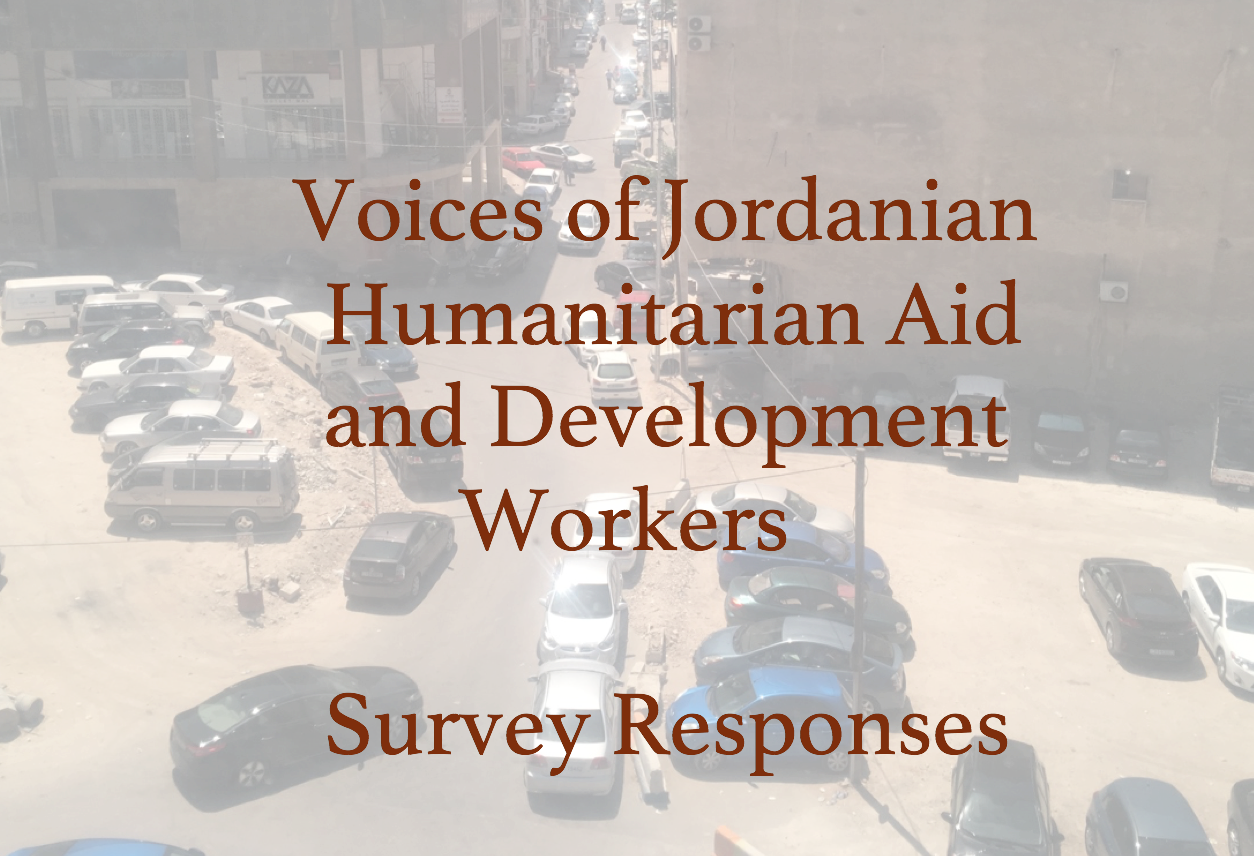Gender and #MeToo
Gender in the Jordanian humanitarian workspace
One goal of the survey was to hear both male and female voices. Overall nearly twice as many females than males -65%- found their way to the survey url and responded. This gender difference has been present in all three of my ‘aid worker’ surveys so far. Female Filipino aid workers comprised 64% of that  sample, and in the ‘mostly expat” survey (with over 1000 respondents) 71% were female. One obvious question that merits further research is why do females more than males grant the trust and then put forth the effort to respond to survey requests.
sample, and in the ‘mostly expat” survey (with over 1000 respondents) 71% were female. One obvious question that merits further research is why do females more than males grant the trust and then put forth the effort to respond to survey requests.
I asked, “To what extent has your gender impacted your humanitarian aid work experience?” As with every other question on this survey, the responses below must be interpreted with extreme caution.
That said, these results are not what I would have expected.
Percentage-wise, males and females had exactly the same number -54%- indicating that their gender “has had no impact on my work experience.” Just looking at the percentages, twice as many males as females -8% to 4%- indicated that their ‘gender has had a negative impact on my work experience.” By a fairly wide margin -24% to 13%- females more than males indicated that their gender has both positive and negative impacts.
The comments below made in response to this question seem to contradict the numbers cited above. This first one raises the question of context and underlines the reality that one’s master status -the most salient feature about oneself that people respond to- is a matter of social definition.
“Inside Jordan, my sex has affected my experience badly. Outside Jordan, it has affected my experience — for the most part — positively. Jordanian women are judged to have less valuable opinions and knowledge in Jordan. Outside Jordan, it tickles the white neoliberal interest that a well-spoken feminist brown woman from the broken Middle East is to be found amidst the rubble of the region. People like me prove the White Burden and imperial efforts have not been for nought.”
This next comment from a female lays out a view perhaps held by many women not only in Jordan but around the world.
“Females are generally discriminated against and there are major stereotypes, generalizations, backwards thinking, religious influences, that females have to deal with when working with men.”
This male respondent expresses well the gender sensitivity difficulties inherent in all aid work. Earning trust in mixed gender situations can be a challenge for both males and females.
“I am a male, so unfortunately I believe that I am more privileged than women in some ways. However, my job requires being on a certain proximity from the beneficiaries when I am in the field and that I win their trust and confidence, which is more difficult when addressing a female program participant or beneficiary.”
#MeToo
I next asked, “The #MeToo (وأنا_كمان#) movement has motivated many women (and men) to come forward regarding various levels of sexual harassment. Regarding your workplace and including colleagues, members of the affected communities you serve, and donors, have you personally experienced any level of sexual harassment at work?” Again, the results are not what I would have anticipated.
The results above indicate minimal gender difference on this question, though I am deeply concerned about the three females indicating “Yes, including serious offenses.” With respect to the question itself one female noted that,
“There’s no such #وأنا_كمان movement. Regarding the answer, I think most of what I have experienced can be termed better as “gender injustice” and inequality rather than personal sexual harassment.”
Another female commented,
“I personally had never experienced sexual harassment in the workplace and don’t know any woman who has (or no woman came to me with this), so I don’t have much to say about it. I think men get harassed just as much as women, I had a LOT of conversation with young men (20s) and A LOT of them had been harassed, and some even in the workplace by WOMEN in JORDAN (which was shocking to me because of the whole connotation that men are victimisers not victims). I imagine people won’t really know where to report to and lack of faith in that reporting system. I know [most INGOs] have an Ethics committee that sits in HQ which is an independent entity that investigates claims like that. I mean if I get harassed by a driver he might lose his job tomorrow, if I get harassed by the Chief of Mission I might end up quitting my job and nothing actually happening to him.”
The assertion that males get harassed “a lot” is at least mildly surprising, and the insight that “…people won’t really know where to report to and lack of faith in that reporting system” is critical from a policy and practice perspective. Messaging the existence of reporting pathways and making sure that those pathways are effective, fair, and responsive needs to be a priority within all humanitarian organizations. Her last sentence points to the oft cited issue that men in power tend to get away with behavior that those on the margins do not.
More survey posts to come in the near future. Email me with questions or comments.


 Follow
Follow